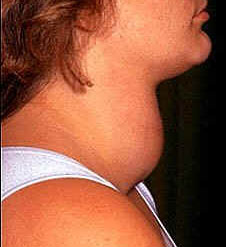Thyroid Disorders Treatment Jaipur
 The thyroid gland undoubtedly stands to be one of the most important glands of the human endocrine system. The gland secretes hormones that regulates metabolism and other important functions of the body, which in turn initiates growth and development of the body.
The thyroid gland undoubtedly stands to be one of the most important glands of the human endocrine system. The gland secretes hormones that regulates metabolism and other important functions of the body, which in turn initiates growth and development of the body.
The thyroid gland produces two important hormones, namely, the thyroxine (T4) and the triiodothyronine (T3). Of these two hormones the T3 hormone is considered to be more crucial in maintaining the metabolism and other bodily functions. When released in the systems a large part of the T4 hormone is converted in to T3 hormone, which is a normal function of the system.
causes
All types of hyperthyroidism are due to overproduction of thyroid hormones, but the condition can develop in several ways:
Graves' disease - This is an auto-immune condition and is the commonest cause of an overactive thyroid gland.
Toxic adenomas - Nodules develop in the thyroid gland and begin to secrete thyroid hormones, upsetting the body's chemical balance. Some goitres may contain several of these nodules.
Subacute thyroiditis - This is where inflammation of the thyroid causes the gland to ‘leak’ excess hormones, resulting in temporary.
hyperthyroidism. The condition generally lasts a few weeks, but it may persist for months.
Pituitary gland malfunctions or cancerous growths in the thyroid gland. In rare cases, hyperthyroidism can also be due to these causes.
Hypothyroidism, by contrast, stems from an underproduction of thyroid hormones. Since your body's energy systems require certain amounts of thyroid hormones, a drop in hormone production leads to lower energy levels.
Symptoms
There are no symptoms that are unique to hypothyroidism. There may be no symptoms early in the disease process. Long standing, untreated hypothyroidism can cause obesity, joint pain, heart disease, and infertility.
Other symptoms can include:
- increased sensitivity to cold
- constipation
- depression
- fatigue
- weakness
- heavier menstrual flow
- brittle hair and nails
If left untreated, the following symptoms can occur:
- hoarseness
- puffiness of the face, hands, and feet
- slowed speech
- decreased taste and smell
- thin eyebrows
- thickened skin
- coma (called "myxedema coma")
Treatment
A common treatment is to replace thyroxine with a specific synthetic thyroid hormone (levothyroxine). This hormone is safe and affordable, but determining the right dosage often takes time. Your metabolic rate has to be returned to normal. Raising it too quickly can cause palpitations and make some medical problems like coronary artery disease and atrial fibrillation worse.
Diets rich in soy and high fiber can interfere with levothyroxine absorption. Medications and supplements also can reduce absorption. These include:
- calcium supplements
- iron supplements
- cholestyramine
- aluminum hydroxide (present in some antacids)





 The thyroid gland undoubtedly stands to be one of the most important glands of the human endocrine system. The gland secretes hormones that regulates metabolism and other important functions of the body, which in turn initiates growth and development of the body.
The thyroid gland undoubtedly stands to be one of the most important glands of the human endocrine system. The gland secretes hormones that regulates metabolism and other important functions of the body, which in turn initiates growth and development of the body.